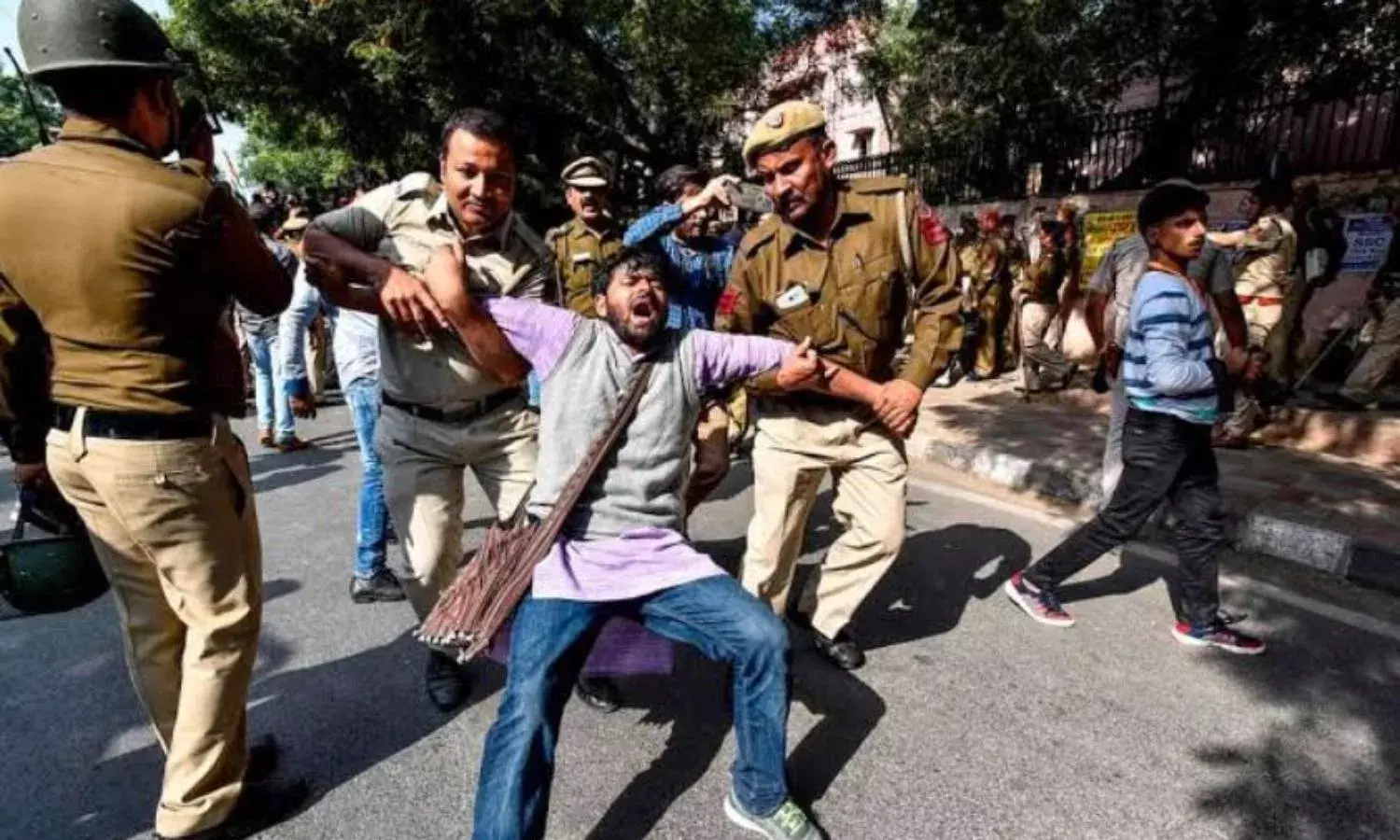Students Chant 'Save Public Education', Govt Responds with Paramilitary Force
Section 144 imposed, students were marching to Parliament

NEW DELHI: A violent clash between students of the Jawaharlal Nehru University and the Delhi Police took place on Monday. Thousands of JNU students, protesting against a massive recent hike in hostel fees, were marching from the main gate of their campus towards Parliament, which convened yesterday for the first day of its winter session.
Towards evening a delegation of student representatives met with the Joint Secretary of the Ministry of Human Resource Development to discuss immediate solutions.
During the march, students carried placards and banners that read ‘Ensure affordable hostels for all’, ‘Save public education’ and ‘Fees must fall.’ They said the march was aimed at saving public universities as well as garnering the attention of MPs.
In response, police and paramilitary personnel barricaded the campus and the gates. Barricades were also installed near Safdarjung’s Tomb to contain the protest midway.
The entry and exit gates of the metro stations at the Central Secretariat, Udyog Bhawan and Patel Chowk, which are near Parliament, were temporarily closed. Metro trains were instructed not to halt at the Jor Bagh or Lok Kalyan Marg stations till late at night.
The central government also imposed Section 144 of the Criminal Procedure Code, an emergency provision intended to prevent “a disturbance of the public tranquility”, on the university campus.
The hashtag #EmergencyinJNU floated on Twitter, with videos purporting to show JNU students being lathicharged and beaten by the police. Some students were shown bleeding from head wounds.
The heavy police presence in riot gear, and the CRPF deployment within and outside the campus did interrupt the momentum of the protest, but students tried to scale the barricades and march on, while chanting loud slogans against the fee hike.
Around 50 JNU students were arrested during the march. They were released after being detained for several hours.
The JNU Teachers’ Association expressed its worry and concern about the intensification of the protests.
On Monday morning the Ministry of Human Resource Development had appointed a three-member panel to look into the matter and restore normalcy on campus. These three members are Professor V.S.Chauhan (former Chairperson, UGC), Professor Anil Sahasrabudhe (Chairman, AICTE) and Professor Rajnish Jain (Secretary, UGC).
Students alleged, however, that the JNU Students’ Union was not informed about this panel.
Protests have been going on for the past three weeks on the JNU campus against the sudden hostel fee hike, leaving the many lower-income students here, often from remote corners of India, in the lurch.
JNU Vice-Chancellor Mamidala Jagadesh Kumar had appealed to the students on Sunday to return to their classes and research activities as end-semester examinations would begin on December 12.
Registrar Pramod Kumar had also released a circular stating that no extension would be given for dissertation submissions or examinations. Students who failed to maintain the needed grades would be “dropped out”.
The registrar had also written a letter to political leaders requesting them to decline students’ invitations to a public meeting on Sunday. The guests included former MP Mohammed Salim, Elamaram Kareem and K K Ragesh, all of the CPI-M, Rajya Sabha MP Manoj Jha (RJD) and Binoy Viswam of the CPI.
KK Ragesh and Mohammed Salim attended the public meeting.
The recent decision of JNU’s Executive Council to partially roll back the fee hike is being termed an “eyewash” by students. The exemption/ financial assistance promised to Below Poverty Line students is ambiguous, as different states have different rules regarding it.
Currently, no let-up in the protests seems likely until a complete rollback of the hostel fee hike is announced. JNU students’ union members have also stated that unless they are consulted, the three-member panel appointed to resolve the issue is unlikely to come up with a workable solution.



